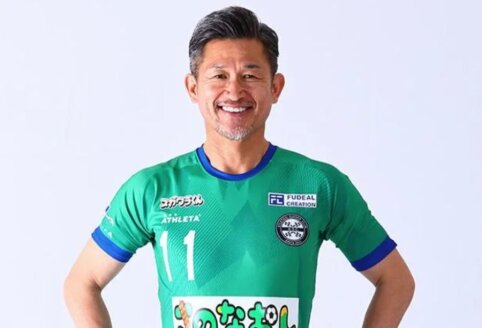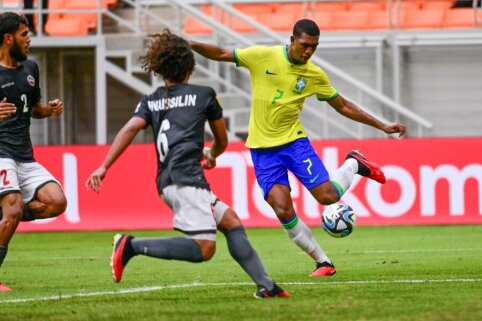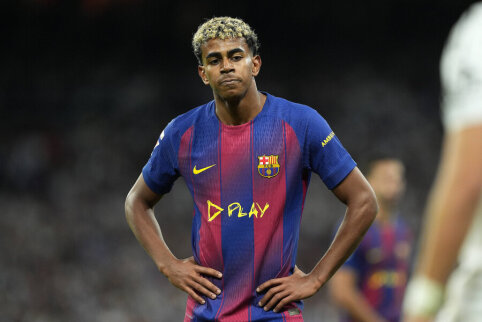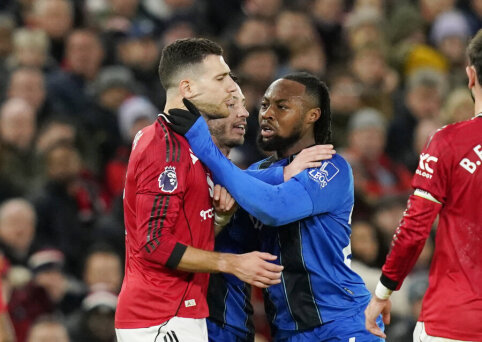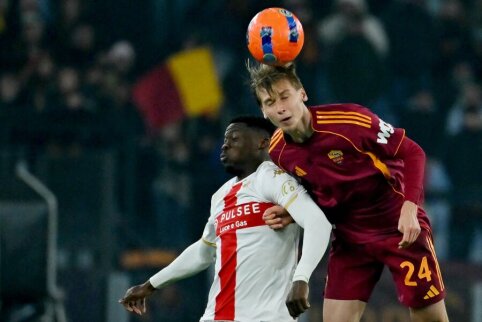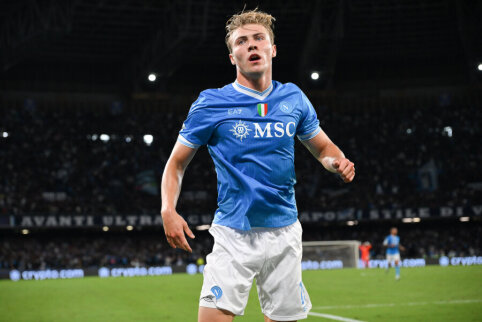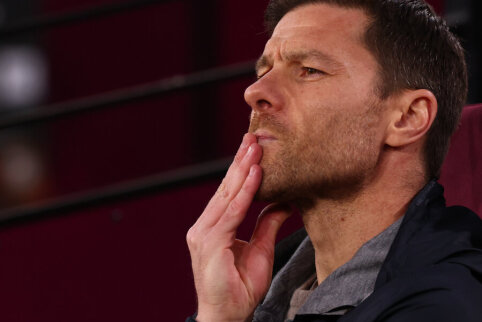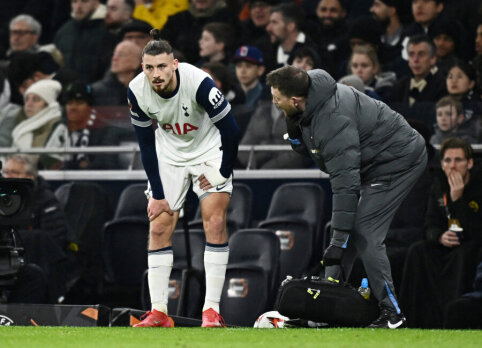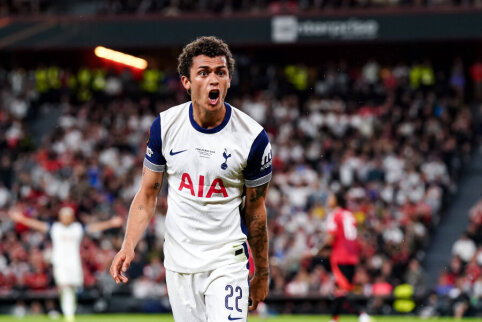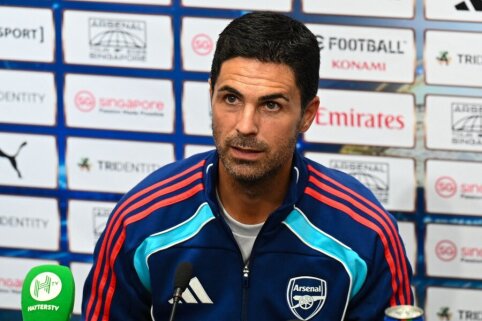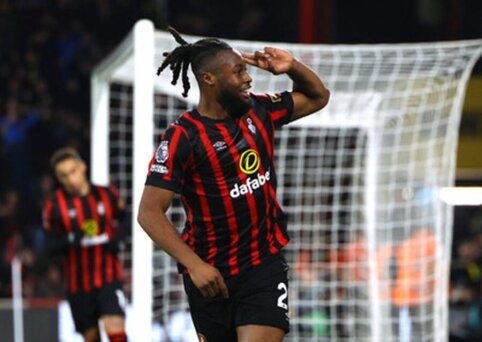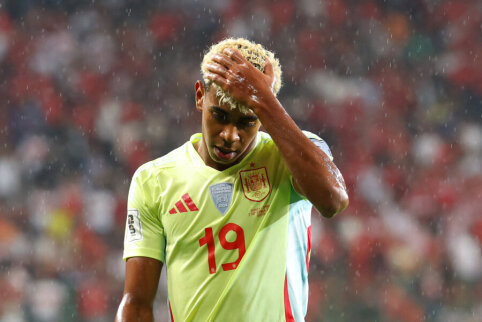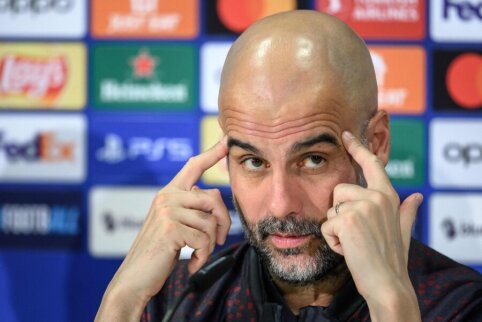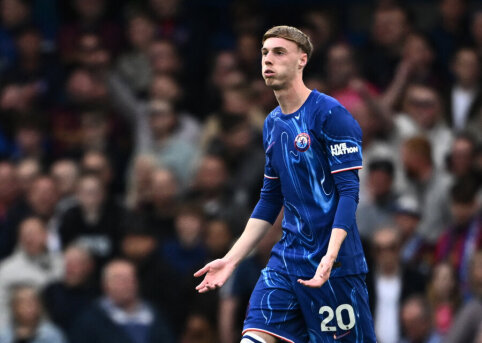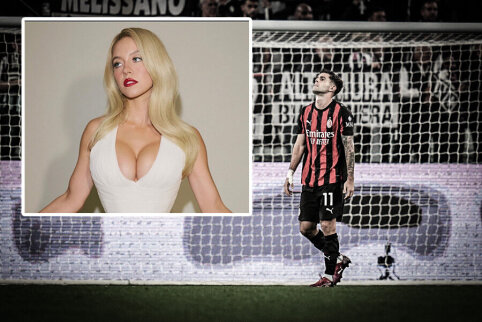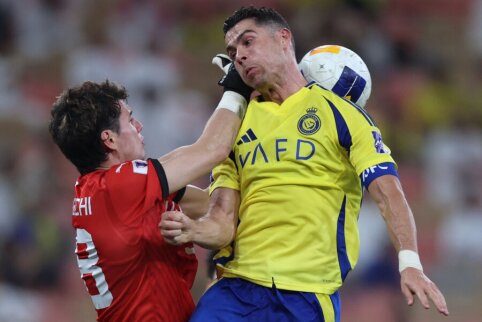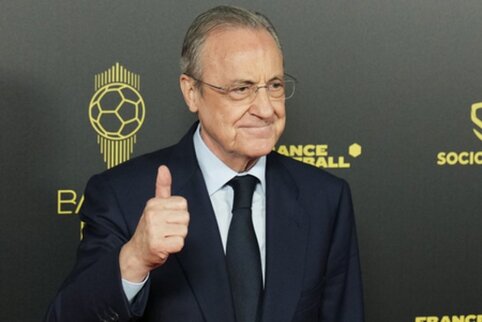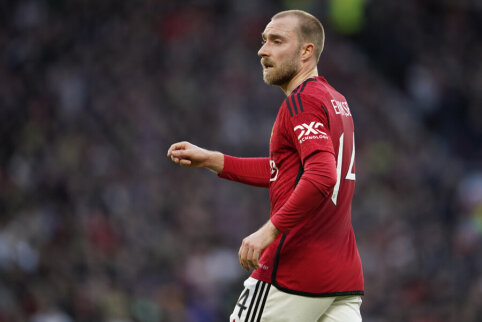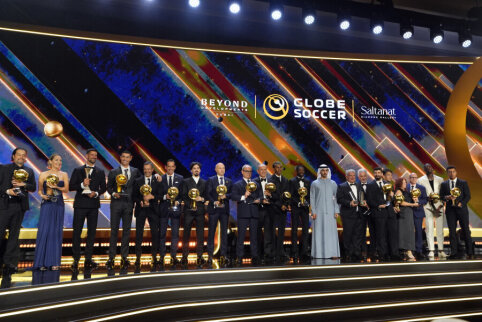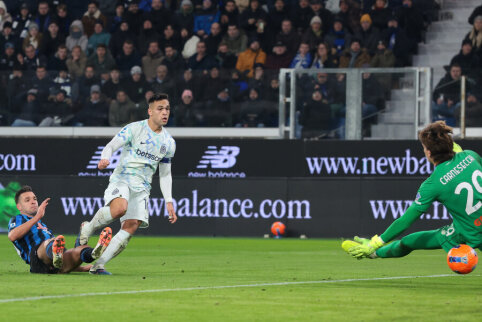 © EuroFootball.com
© EuroFootball.com
In the "Tribune" section of the website, visitor Giedrius suggests another article, this time reviewing another "Manchester United" legend who recently left the club - the Irish defender Roy Keane, known for his leadership qualities, fighting spirit, "tough" play, and controversial behavior.
Keane - the legend of "Manchester United"
A few days ago, a farewell match took place for another player who became a legend at "Manchester United" - Roy Keane. The match took place at "Old Trafford" stadium, where 70,000 loyal fans of the Manchester club gathered to watch their favorite player play for the last time. The match ended with a 1-0 victory for "Man Utd" over "Glasgow Celtic," with Cristiano Ronaldo scoring the only goal. Keane started the first half in the "Celtic" team and switched to "Man Utd" in the second half, leaving a lasting impression. After his controversial departure from the club before the end of the previous season, the defender was unsure of how he would be received by the most loyal "United" fans. However, hearing long ovations, he realized that over the years he had become a symbol and a legend of the club to the fans.
Roy Keane was born on August 10, 1971 in Cork, Ireland. He began his professional football career at the "Cobh Ramblers" club in Ireland. A year later, he was noticed by scouts from the English club "Nottingham Forest," leading him to England. With "Forest," Keane reached the FA Cup final in 1992, where they lost to "Tottenham," and the following season reached the League Cup final, losing 0-1 to "Man Utd." In his 114 matches for "Forest," Keane scored a total of 22 goals. After the 1992/93 season, Roy Keane became one of the most coveted players in the English league. In the summer, for a record at that time of £3.75 million, Keane moved to Manchester.
Here he immediately became a fan favorite. He played in a demanding defensive midfielder position, working hard and fighting for every ball. He never spared himself or his opponents, but the opponents on the field either feared or respected him. According to experts, there had never been such a strong defensive midfielder in the English top league before, who could knock the ball out from under an unsuspecting opponent's feet so well. Knowing that Cantona or Hughes could handle things upfront, Roy Keane was exactly what Manchester United needed to achieve impressive victories. After Cantona left the club in 1997, there was no doubt that Keane should be the team captain, and he was not only one of the leaders on the field but also an undisputed leader in the dressing room. Therefore, his word in the team, after Sir Alex Ferguson, was always decisive.
Roy was not only the soul and leader of the team, but also a very temperamental and quickly flaring person. Due to his tough character, he was involved in many conflicts during his career.
Because of his hot temper, he only participated in one World Cup during his career, in 1994 in the USA. In 2002, when he could have gone a long way with the Irish national team, he quarreled with the team's head coach, Mick McCarthy, over the training camp for the World Cup, and the coach, aiming to improve the team's atmosphere, expelled the team leader just before the start of the World Cup. Therefore, Roy played very few games for the national team during his career, only 66 matches, scoring 9 goals.
A more recently known incident, which later caused Keane a lot of trouble, was revealed in his autobiography that in 2001 he intentionally broke the leg of Manchester City player Alf-Inge Håland during a match, causing him to end his career. However, it is worth mentioning that the same player had previously injured Keane for most of the 1997/98 season, "stubbing" him in the legs. Keane was punished by the league administration for this incident, with a ban for five matches and a fine of £150,000.
Later, in 2005, injured and unable to watch his young colleagues play terribly, Keane, during a live broadcast on the Manchester club's TV channel, criticized the entire team without mincing words, calling them a "gang of losers" and announcing that it would be his last season at the club. This was too much even for Sir Alex Ferguson, who had always defended and supported him, and by mutual agreement on November 18, 2005, he left the club and finished the season at his childhood favorite club, Celtic in Glasgow.
During his 12-year career at "Man Utd," Roy Keane achieved impressive successes: 7 Premier League titles, 4 FA Cups, the Champions League in 1999, and later the Intercontinental Cup. Keane scored 32 goals in a total of 326 matches for Manchester United.
In his final season, he also became a Scottish league champion with the Celtic club.
Memorable career matches
There were many great games in the defender's career, and picking one is very difficult, but it should be the matches from the most successful season of all time for the "Red Devils," 1998/99, when the club won everything possible: the Premiership championship, FA Cup, Champions League, and finally the Intercontinental Cup. That season, Keane was the true soul of the team, and what he meant to the team was best demonstrated in the UEFA Champions League semifinal second leg, when, after playing 1-1 at home in the first leg against Juventus, trailing with two goals early in the second leg. When it seemed that the season would end without success in the European competitions, Roy Keane took the initiative, scoring a header in the 24th minute, igniting his team, and later, Manchester scored two more goals in that emotional match, miraculously reaching the UEFA Champions League final. Keane was unable to play in the final due to accumulated yellow cards, but that season the team just could not lose and, in the final, created perhaps the greatest miracle in football history by beating Bayern Munich in extra time and becoming the strongest team in Europe for the second time in the club's history.
Keane's influence on the team that season and throughout his career in the "Man Utd" ranks is best illustrated by the fact that Sir Alex Ferguson saw this relentless Irishman as his successor in the club.
Thank you for many great moments, Keane!
